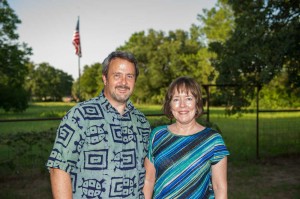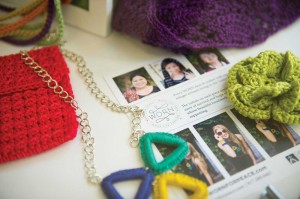The average age of the unaccompanied refugee and other immigrant children whom Catholic Charities Fort Worth serves is 16; they may have been through many kinds of trauma and have spent years in various stages of the refugee process before reaching Texas. Although they come from all over, the majority are from the Congo, Eritrea, and Burma, in addition to Central America. Their parents and indeed their whole family may be dead or missing or have been kidnapped.
Children like those crossing the Texas-Mexico border may or may not be given refugee status. The Catholic Charities foster-family program saves mostly refugee children and also those for whom refugee status is being sought.
The number of children that Catholic Charities of Fort Worth accepts into its program each year is limited by the number of qualified foster homes available.

“The goal is to provide a safe, nurturing environment,” Wilson said. If the kids are traumatized, the charity gets them into counseling. “The [refugees] can stay in the program until they are 21 if they are in school. We want them to have a life plan and encourage them to go to college.”
Krisan Buckel of Azle said she had considered fostering a U.S. child at several points in her life, but the thought of welcoming a refugee child into her family occurred only when her daughter began an internship at Catholic Charities in early 2009. Through her daughter, Buckel heard about the adult refugees’ plight, but nothing affected her so much as the stories of refugee children who’d lost their families.
In the training program, Krisan and her husband Bob learned about the challenges of fostering a child from war-torn regions.
“These children do not have a home to go back to,” she said. “The post-traumatic-stress symptoms can be horrendous.”
Three years ago, after all the training and background checks and home inspections, the couple was ready to take in their first refugee child.
Catholic Charlties’ WORN program provides income for refugee women.
Catholic Charities recommends that just one family member come to pick up a newly arrived refugee child. So it was only Bob who waited at DFW Airport for their child.
On the way home, Bob called Krisan with good news: The child wanted to talk to her.
“That’s when I knew everything was going to be fine,” she recalled.
Krisan and Bob have volunteered for another part of the foster-care program called respite care. Parents in this program take in refugee children from other foster parents for short periods of time, giving them time to recuperate from the often emotionally draining work of fostering.
“We’ve kept kids from Burma, Mexico, Honduras, Sudan” as part of the respite-care program, she said. “Fostering can be stressful. All these children have been through some form of trauma. Some children want to talk about their experiences, and some come from cultures that hold things in.”
For the Buckels, the joy of fostering is tempered by the wish that neither no child would have to become a refugee in the first place. But given the realities of world conflict, they’re grateful for the chance to help.
“It’s an act of faith to take in someone from an unknown culture,” Krisan said. “It’s a profoundly rewarding thing for any family to do.”
********












